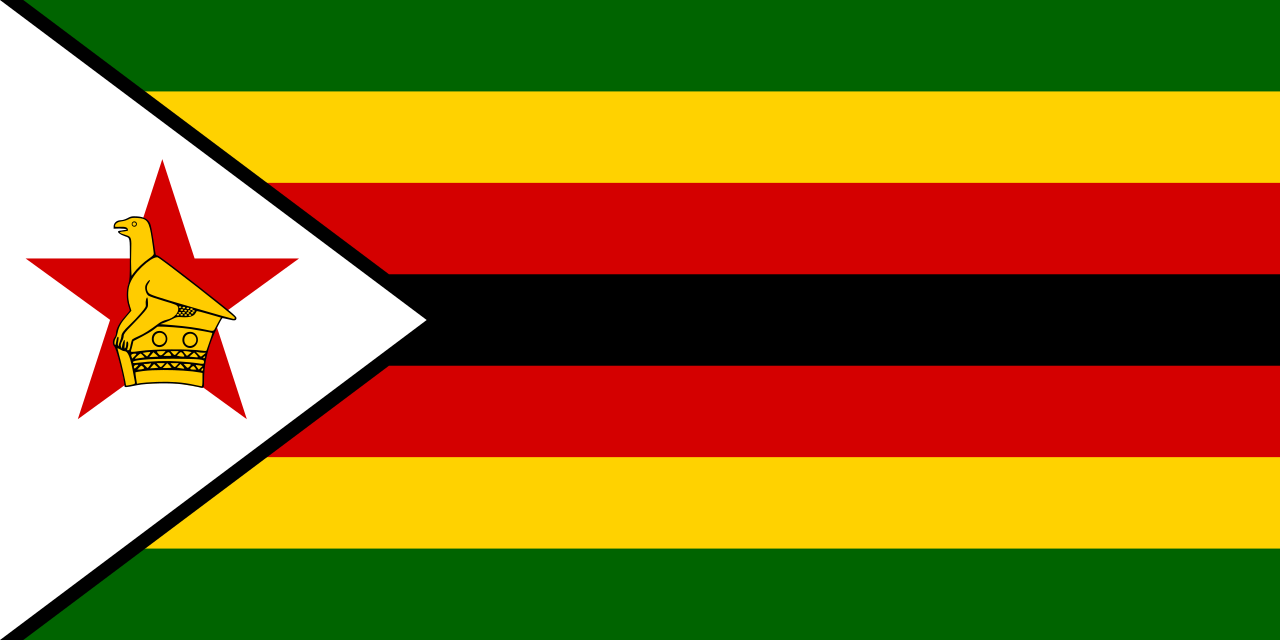The UK annexed Southern Rhodesia from the former British South Africa Company in 1923. A 1961 constitution was formulated that favored whites in power. In 1965 the government unilaterally declared its independence, but the UK did not recognize the act and demanded more complete voting rights for the black African majority in the country (then called Rhodesia). UN sanctions and a guerrilla uprising finally led to free elections in 1979 and independence (as Zimbabwe) in 1980. Robert MUGABE, the nation's first prime minister, has been the country's only ruler (as president since 1987) and has dominated the country's political system since independence. His chaotic land redistribution campaign, which began in 1997 and intensified after 2000, caused an exodus of white farmers, crippled the economy, and ushered in widespread shortages of basic commodities. Ignoring international condemnation, MUGABE rigged the 2002 presidential election to ensure his reelection.
In April 2005, the capital city of Harare embarked on Operation Restore Order, ostensibly an urban rationalization program, which resulted in the destruction of the homes or businesses of 700,000 mostly poor supporters of the opposition. MUGABE in June 2007 instituted price controls on all basic commodities causing panic buying and leaving store shelves empty for months. General elections held in March 2008 contained irregularities but still amounted to a censure of the ZANU-PF-led government with the opposition winning a majority of seats in parliament. Movement for Democratic Change - Tsvangirai opposition leader Morgan TSVANGIRAI won the most votes in the presidential poll, but not enough to win outright. In the lead up to a run-off election in June 2008, considerable violence against opposition party members led to the withdrawal of TSVANGIRAI from the ballot. Extensive evidence of violence and intimidation resulted in international condemnation of the process. Difficult negotiations over a power-sharing "government of national unity," in which MUGABE remained president and TSVANGIRAI became prime minister, were finally settled in February 2009, although the leaders failed to agree upon many key outstanding governmental issues. MUGABE was reelected president in June 2013 in balloting that was severely flawed and internationally condemned. As a prerequisite to holding the election, Zimbabwe enacted a new constitution by referendum, although many provisions in the new constitution have yet to be codified in law.
Zimbabwe is semi-presidential republic.
Source: CIA World Factbook
Members:
Resources
Displaying 41 - 45 of 59Deeds Registries Act [Chapter 20:05].
This Act principally makes provision for the making and registration of deeds regarding land and other real rights, for rights in land such as lease and servitude and for the transfer of land.The Act consists of 88 section divided into 7 Parts: Preliminary (I); Administration (II); Registration (III); Registration of land (IV); Bonds (V); Rights in immovable property (VI); General (VII).There shall exist registries of deeds as set out in section 3. The Minister shall appoint a Chief Registrar of Deeds and may appoint other registrars of deeds pursuant to section 4.
Rural Land Act [Chapter 20:18].
This Act concerns rural land. The Act consists of 15 sections divided into 4 Parts: Preliminary (I); Acquisition and Alienation of State Land (II); Occupation of Land by Person Other Than Owner Not Involving Subdivision (III); General (IV).Communal land and other specified types of land are excluded from the operation of this Act (sect. 3). Section 5 provides for the acquisition of land by the State; section 6 for the alienation of State land.
Land Occupation Conditions Act [Chapter 20:11].
"Occupation" is defined in section 2 as "actual and bona fide farming by cultivation or with stock". Section 3 specifies terms on which conditions in title deeds in land regarding occupation shall be deemed to be satisfied. Such criteria regard construction of permanent building, cultivation or keeping of cattle or other livestock for a specified amount of time.
Agricultural Land Settlement Act [Chapter 20:01].
The Act makes provision for the Agricultural Land Settlement Board and for the lease of agricultural land by public authorities in the framework of development of agriculture and the control on the use of land.The 53 sections of this Act are divided into 7 Parts: Preliminary (I); Agricultural Land Settlement Board (II); Functions of the Board (IIa); Land Settlement (III); Control and Occupation of Agricultural Land (IV); Agricultural Land Settlement Appeal Board (V); General (VI).The Agricultural Land Settlement Board shall consider and report on all applications for leases of holdings in t
Environmental Management Act [Chapter 20:27].
This Act provides for the establishment of the National Environmental Council, the Environmental Management Agency, Environment Management Board, the Standards and Enforcement Committee and the Environment Fund, provides for the formulation of environmental quality standards and environmental plans, provides for environmental impact assessments audit and monitoring of projects and for other matters relative to management and conservation of the environment.The Act consists of 143 sections divided into 16 Parts: Preliminary (I); General Principles of Environmental Management and Functions of


